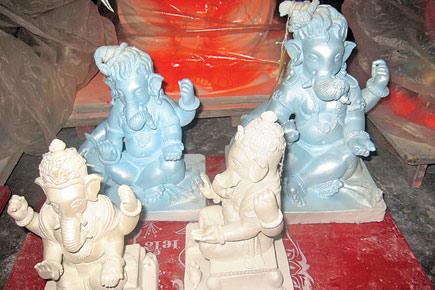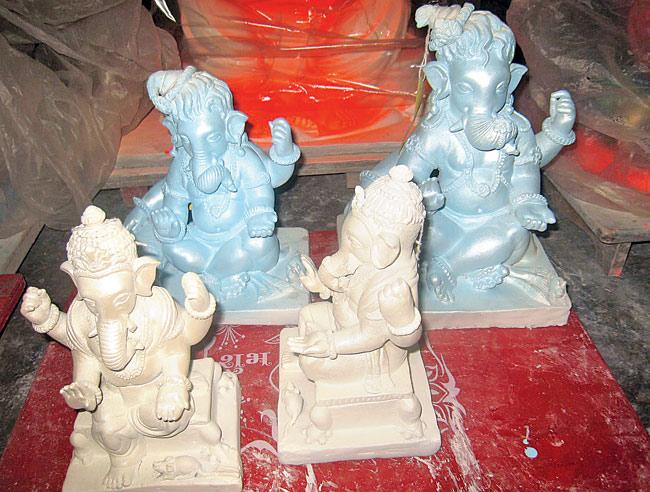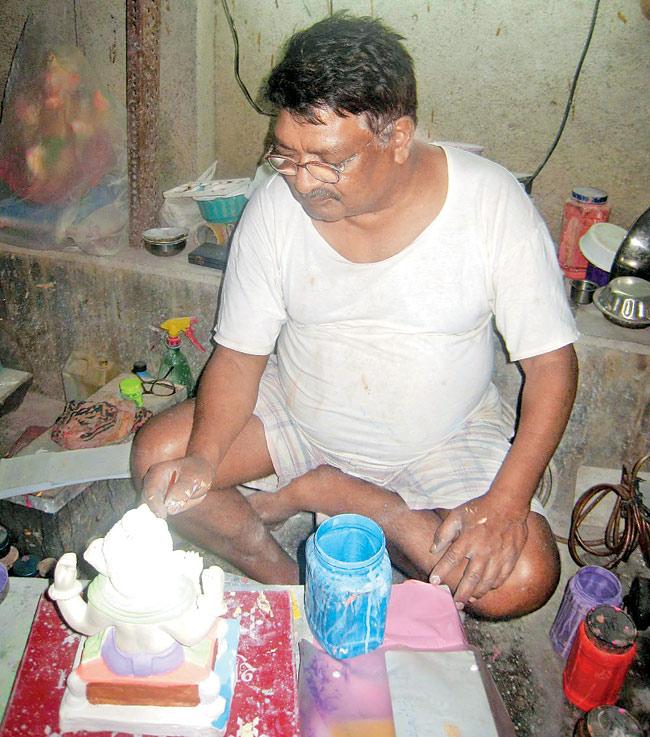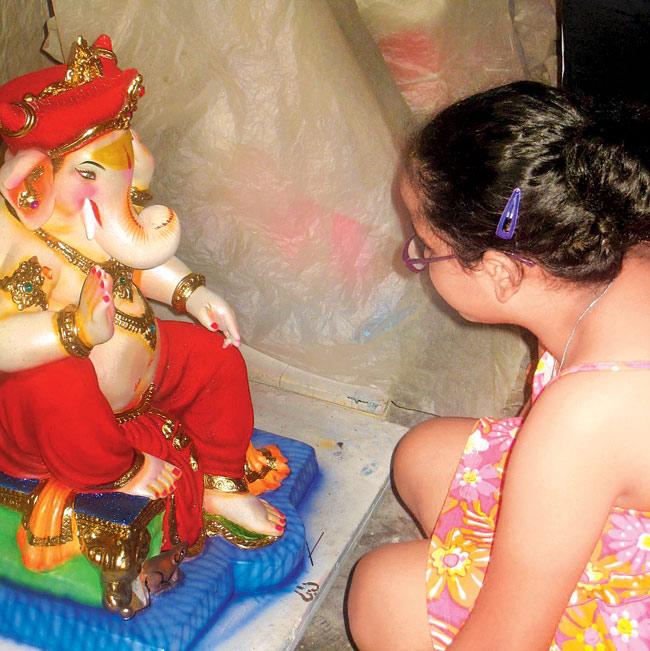By the time the kids and I meander towards the impromptu workshops, all the big idols are ready and up. In fact, they are covered

The Ganpati idols at the workshop
 By the time the kids and I meander towards the impromptu workshops, all the big idols are ready and up. In fact, they are covered. It’s Ganesh Chaturthi and I’ve taken the kids to the Ganpati workshops that are working on impressive, giant statues of the elephant-headed God.
By the time the kids and I meander towards the impromptu workshops, all the big idols are ready and up. In fact, they are covered. It’s Ganesh Chaturthi and I’ve taken the kids to the Ganpati workshops that are working on impressive, giant statues of the elephant-headed God.
Finding a Ganpati workshop that makes eco-friendly Ganpatis took a few hits and misses.
Then, in the bylanes of Chuim Village, Bandra, we meet Mahapsekar who has got mud all the way from Haryana to make Ganpati idols. This is what he has been doing for the last five years. On a turntable, that he has crafted with his own hands, he sits putting the last touches to many small (2 feet) Ganpatis.
Sitting in his tarpaulin-covered workshop, under the light of a bulb, swatches of paint are being carefully added. A client is in and unhappy with the idol that has been kept aside for them. A few more are shown. Most though, are ready and covered with transparent plastic and have been reserved.
ADVERTISEMENT

The Ganpati idols at the workshop
The kids have their questions and seem disappointed. They wanted to see Ganpatis made of recycled paper pulp. The man laughs. He explains how mud is sent all the way from Haryana and how he goes to fetch the consignment from the port. Work on the idol starts three months before the festival.
 Idol maker Mahapsekar crafts the idols
Idol maker Mahapsekar crafts the idols
“I can get mud from Sawantwadi where I live,” he says. “But that soil is heavier. This one works just as well and is lighter,” he explains.
The kids watch as he makes the eyes come alive, painting each eyelash and then adding layers to the dhoti, shading the mouse and embellishing the crown.

The idols need 16 coats of paint and are made from mud from Haryana
“The designs and the structure are thought of in advance. I start with a posture in mind and the rest happens,” he explains.
Mahapsekar has spent 25 years of his life painting cars in an automobile factory. “I must have painted lakhs of cars in my life,” he says almost wistfully, “I won’t even know when they pass by.”
It takes three weeks for the clay to dry before the first coat is applied. Then it takes two weeks of drying before more paint is applied. “In all, 16 coats of paint are used for the process,” he elaborates.
“Do you make mistakes?” my son, Ammol wants to know.
“Yes,” says Mahapsekar
“Do you get punished?” my daughter Vani asks.
The man nods. I wonder if he understands the question. Or perhaps I don’t understand the answer.
 Subscribe today by clicking the link and stay updated with the latest news!" Click here!
Subscribe today by clicking the link and stay updated with the latest news!" Click here!






